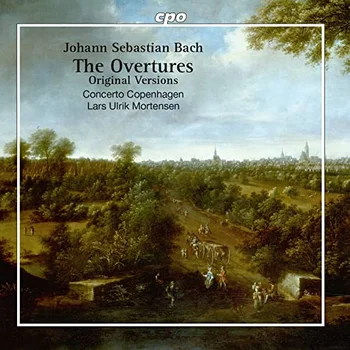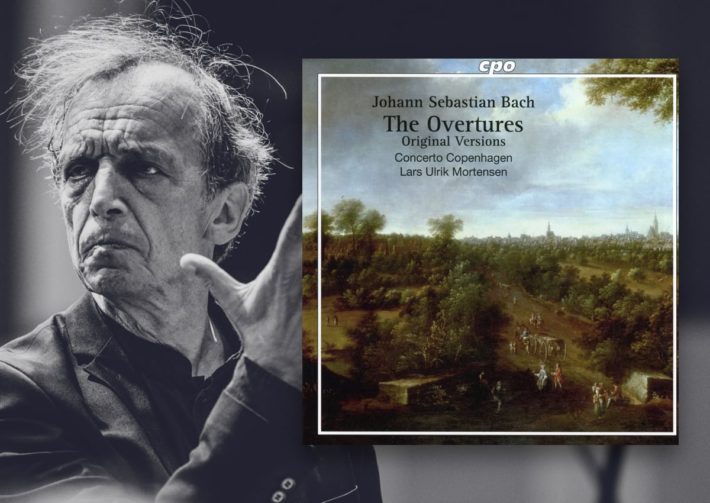Image: ©️ LEES foto
To be offering ‘original versions’ of Bach’s orchestral suites is a substantive and intriguing claim to make; Anyone intimately familiar with these pieces and the range of recordings available will know that there are many possible approaches, from various sized ensembles to modern and period instrument choices. One has to raise the question – what more can be added to these frequently recorded pieces?

The booklet explains what is meant by ‘original versions’. It claims, rather circumstantially, that additional parts were added in Bach‘s Leipzig years, when he had more instruments (and instrumentalists) at his disposal. For Suites 1 and 2, the instrumentation is as listeners have come to expect, with no distinguishable difference. Suite 3 is for strings alone, omitting the familiar woodwind, brass and timpani, while in Suite 4 the woodwind remain with strings, but again without brass and timpani.
To add to the slimmed-down orchestration, Concerto Copenhagen perform with one player to a part; while there may be scholarly justification for doing so, there is conversely no scholarly argument against using a larger body for the strings. In the first suite, the one-per-part approach creates balance problems with the strings and winds — a similar problem experienced by Alessandrini with Concerto Italiano, reviewed here. The winds overly dominate in the unison passages, almost losing the inner strings, most noticeably in the ‘Overture’, though less so in the gavottes, in which the strings’ rhythmic figures are more pronounced.
The one-per-part approach works most effectively in the second suite with its solo flute, played by Katy Bircher. The entire ensemble balance and the expressive details, with aptly shaped crescendos and diminuendos and rather crisp articulation, allow the textures of the music to shine, especially in the ‘Polonaise’ and ‘Menuet’. When the flute and first violin diverge there is some real spontaneity and vitality between the two players, bringing genuine excitement.
The Third Suite has a chamber-like ambiance. Like the Fourth, it misses all the ceremonial grandeur which one has come to expect with trumpets and timpani, which accentuate the rhythms. The inner string voices do bring some rhythmic impetus, while brisker tempi add momentum, preventing the string timbres alone from becoming monotonous. The playing here and throughout cannot be faulted, but given the more familiar full orchestration, the performance is slightly underwhelming.
Directing from the harpsichord, Lars Ulrik Mortensen is sincere and sympathetic to the continuo part. Mortensen chooses some sprightly tempos which seem to encapsulate the dance, often much more vivaciously than his counterparts; but the reduced body of strings and absence of brass fail to bring an expanse or scale to the suites.
The recordings are very clear, which is best suited and balanced in suites 2 and 3. In the First Suite (the Overture especially), the woodwind over-dominate the strings, and the harpsichord is very far forward. These are less of an issue in the Fourth Suite, which has better balancing.
These recordings are more of a curiosity to the musicologist or to listeners who’ve heard every other approach to the Suites. As an indulgence, having grown up with a modern, non-period performance, Sir Neville Marriner’s Academy of St Martin in the Fields is always a favorite, as is the historically informed Christopher Hogwood with the Academy of Ancient Music or Trevor Pinnock with the English Consort. As a modern alternative, Masaaki Suzuki and Bach Collegium Japan offer stylistic, dependable and repeatedly satisfying performances.
Recommended Comparisons
Hogwood | Marriner | Alessandrini | Koopman
Bach – 4 Orchestral Suites (“Overtures”)
Concerto Copenhagen
Lars Ulrik Mortensen – Conductor
CPO, CD 555 346–2



















